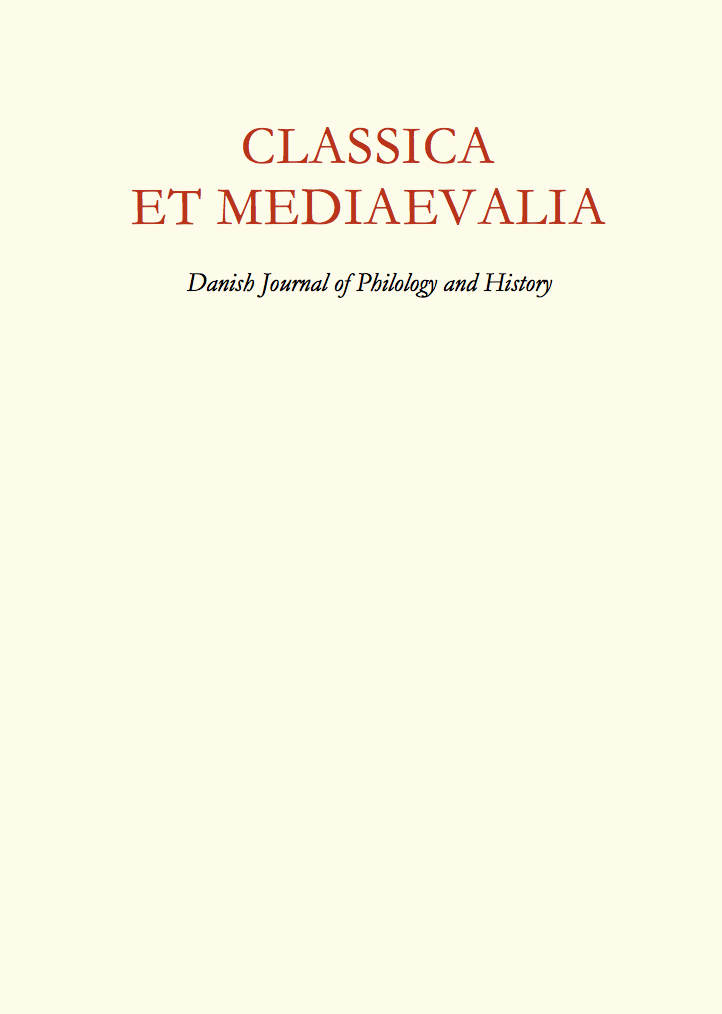Herodotus 9.85 and Spartiate Burial Customs
DOI:
https://doi.org/10.7146/classicaetmediaevalia.v69i0.118996Abstract
At 9.85 Herodotus states that after the Battle of Plataia, the Lakedaimonians buried their dead in three separate graves: one for the ἱρέες, one for the rest of the Spartiates, and one for helots. Taken together with 9.71, this passage suggests that all of the Spartiates decorated for bravery at Plataia were priests, which seems prima facie improbable. The interpretive challenges presented by 9.85 have been the subject of lively scholarly debate since the eighteenth century because this passage potentially provides important evidence for Spartiates’ funerary, religious, and educational customs. With an eye to facilitating future research, this article offers a detailed conspectus of the extensive collection of relevant scholarship and, in part by drawing upon evidence from the archaeological excavations of the Tomb of the Lakedaimonians in the Kerameikos, identifies one reading, which involves athetizing part of 9.85, as the preferred interpretive approach.
Downloads
Published
How to Cite
Issue
Section
License
Authors who publish with this journal agree to the following terms:
- Authors retain copyright and grant the journal right of first publication with the work simultaneously licensed under a Creative Commons Attribution License that allows others to share the work with an acknowledgement of the work's authorship and initial publication in this journal.
- Authors are able to enter into separate, additional contractual arrangements for the non-exclusive distribution of the journal's published version of the work (e.g., post it to an institutional repository or publish it in a book), with an acknowledgement of its initial publication in this journal.
- Authors are permitted and encouraged to post their work online (e.g., in institutional repositories or on their website) prior to and during the submission process, as it can lead to productive exchanges, as well as earlier and greater citation of published work (see The Effect of Open Access).





